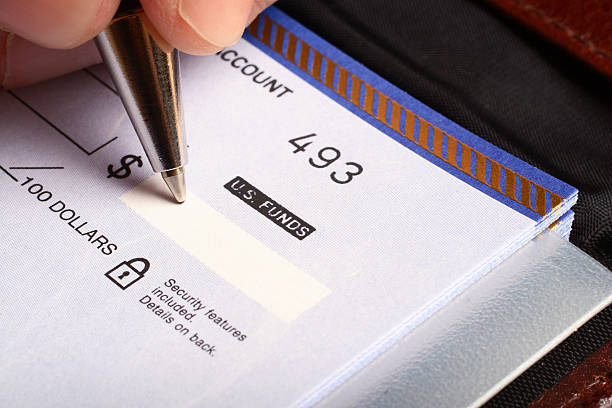Donate Your Car to Charity: A Comprehensive Guide
Introduction
Donating a car to charity is a meaningful way to support a cause you care about while potentially benefiting from a tax deduction. This process involves transferring ownership of your vehicle to a charitable organization, which then uses the car for its operations or sells it to fund its activities. Car donations can support a wide range of causes, including education, healthcare, disaster relief, and environmental protection. This guide will walk you through the steps of donating your car, the benefits you can expect, and important considerations to keep in mind.
Why Donate Your Car?
Car donations are beneficial for both the donor and the recipient. For the donor, it offers a way to dispose of an unwanted vehicle without the hassle of selling it. It also provides a tax deduction, which can be a significant financial benefit. For the charity, the car represents a valuable asset that can be used to further its mission, whether through direct use or by selling it for funds.
Many people find themselves with an old car that they no longer need or use. These vehicles often sit in driveways or garages, taking up space and potentially deteriorating over time. Donating your car can free up this space and put the vehicle to good use. Additionally, knowing that your donation is supporting a cause you believe in can be deeply satisfying.
How to Choose a Charity
Selecting the right charity to donate your car to is crucial. You'll want to choose an organization that aligns with your values and has a solid reputation. Start by researching charities that accept car donations. Look for those that are registered as 501(c)(3) organizations, which means they are recognized by the IRS as tax-exempt. This designation is important for ensuring that your donation is tax-deductible.
Check the charity's ratings on websites like Charity Navigator or GuideStar. These platforms provide detailed information about the financial health, accountability, and transparency of nonprofit organizations. Reading reviews and testimonials from other donors can also give you insight into the charity's operations and impact.
The Donation Process
The process of donating your car to charity typically involves several steps. First, you'll need to fill out a donation form, either online or in person. This form will ask for details about your vehicle, including the make, model, year, and condition. Some charities accept cars in any condition, while others may have specific requirements.
Once you've submitted the form, the charity will arrange for your car to be picked up or dropped off. If the car is not in working condition, the charity may tow it at no cost to you. Be sure to remove all personal items from the vehicle before the transfer.
After the charity takes possession of your car, they will handle the paperwork to transfer the title. You should receive a receipt confirming your donation, which you'll need for tax purposes. If the charity sells the car, they are required to provide you with a written acknowledgment of the sale price if it exceeds $500. This document is essential for claiming your tax deduction.
Tax Benefits
One of the significant advantages of donating your car to charity is the potential tax deduction. The IRS allows you to deduct the fair market value of your vehicle if the charity uses it for its operations. If the car is sold, you can deduct the sale price. It's important to note that to claim this deduction, you must itemize your deductions on your tax return.
To determine the fair market value of your car, you can use resources like the Kelley Blue Book or the National Automobile Dealers Association (NADA) guides. These tools provide estimates based on the make, model, year, mileage, and condition of the vehicle.
Keep all documentation related to your donation, including the receipt from the charity and any acknowledgment of sale. This paperwork will be necessary when filing your tax return. If you have questions about the tax implications of your donation, consider consulting a tax professional.
Avoiding Scams
Unfortunately, not all car donation programs are legitimate. Some organizations may misrepresent themselves as charities or fail to use donations as intended. To avoid scams, do thorough research before donating your car.
Verify the charity's status with the IRS and check for any complaints with the Better Business Bureau. Be wary of organizations that offer to handle all the paperwork for you but are not transparent about their operations or the use of donations.
Legitimate charities will be open about their mission, how they use donations, and their financial practices. If something feels off or too good to be true, trust your instincts and look for another charity.
Making the Most of Your Donation
To maximize the impact of your car donation, consider the following tips. First, choose a charity that will use the car for its operations rather than selling it. This often provides a larger tax deduction and ensures the vehicle directly supports the charity's mission.
Second, clean and repair your car before donating it. While many charities accept cars in any condition, a clean and functional vehicle is more likely to be used or sold at a higher price. This can increase the value of your donation and the potential tax deduction.
Third, complete all necessary paperwork accurately and promptly. This includes transferring the title and notifying your state's Department of Motor Vehicles (DMV) of the donation. Failing to properly transfer ownership can result in legal and financial issues down the line.
Frequently Asked Questions
Many donors have questions about the car donation process. Here are some common inquiries and their answers:
Can I donate a car that doesn't run? Yes, many charities accept non-running vehicles. However, you should confirm this with the charity beforehand.
What if I lost the title to my car? The charity may assist you in obtaining a duplicate title from your state's DMV. This process varies by state, so check local regulations.
How long does the donation process take? The timeline can vary, but most charities aim to complete the process within a few weeks. This includes arranging pickup, transferring the title, and providing necessary documentation.
Can I donate a car with a lien? Generally, you must pay off any outstanding loans on the vehicle before donating it. The charity cannot accept a car with a lien.
Will I get a tax deduction if my car is sold for less than $500? Yes, if the car sells for less than $500, you can claim a deduction of the fair market value up to $500 without needing a written acknowledgment of the sale price from the charity.
Conclusion
Donating your car to charity is a generous act that can significantly benefit both you and the recipient organization. By following the steps outlined in this guide, you can ensure a smooth and rewarding donation process. Remember to research charities thoroughly, complete all necessary paperwork, and keep detailed records for tax purposes. Your old car can make a big difference in the lives of others, supporting causes that matter and potentially providing you with a valuable tax deduction. Embrace the opportunity to give back and turn your unused vehicle into a force for good.




